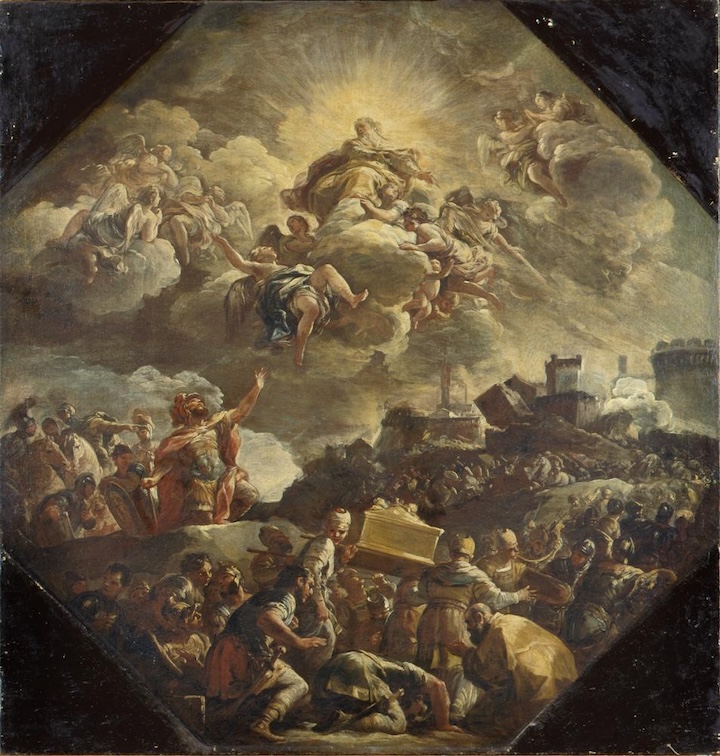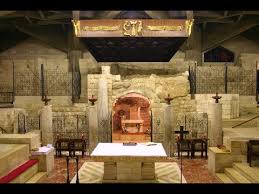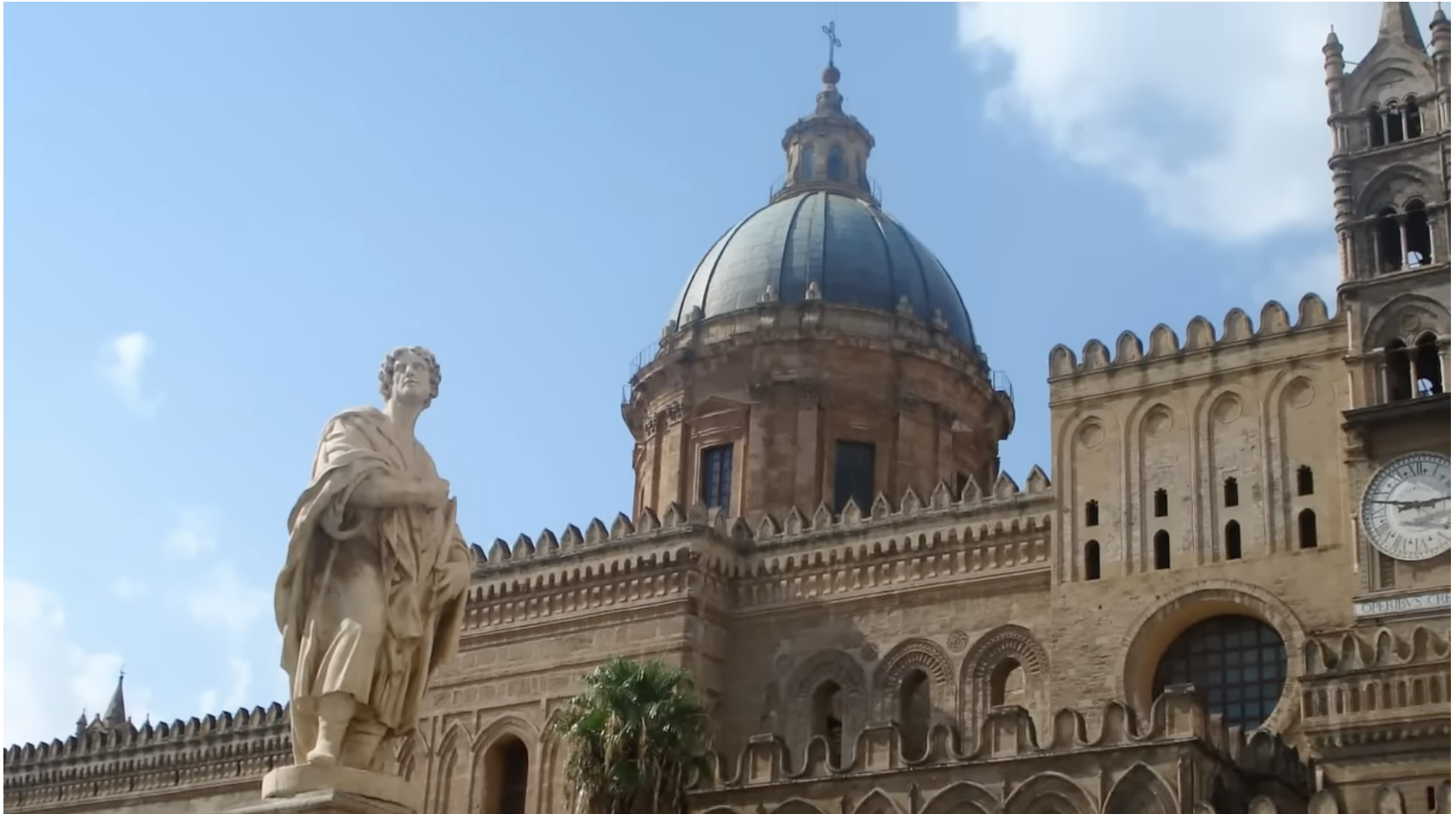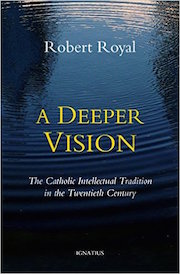Today is “Dante Day,” according to someone, somewhere. (It’s also – who knows how? – National Napping Day, National Immune System Day, and a dozen other such profane observances now jostling the liturgical calendar.) It’s good to honor the greatest Catholic poet, of course, arguably the greatest poet period. We’ve done our part at TCT: You can click here for our online courses on Dante’s Divine Comedy. But today is also the Fourth Monday of Lent, the minor feasts of St. Aengus and St. Constantine (co-incidentally, the first night of Ramadan), which are of far different and infinitely greater import.
As “everything solid melts into air,” as Marx put it, human beings instinctively reach for something stable amid the flux – especially in times like these, when time itself seems to have sped up, and on a bad road. Remembering and seeking to live in continuity with the past is not “backwardism” or “rigidity.” It’s the sane human recognition that we come from somewhere. And are going somewhere.
Unlike most religious and philosophical systems, Christianity, like Judaism before it, recognizes that God works in history, which is to say, time and space – that time and space are, therefore, fundamentally sacred, not secular. A stumbling block to many because it means that a tiny Middle Eastern tribe – contrary to reasonable expectations – was the temporal vehicle for God’s revelations to the world. An absurdity to ancient pagans. And to pagans now.
Despite the historical record – that the Church, God’s faithful people, converted the mighty Roman Empire and spread around the entire globe – the reality of sacred history looks nonsensical to many who regard themselves as rational and enlightened. But how else do we explain the spread of the Faith by humble figures – fishermen, tax collectors, tent-makers – which Aquinas suggested may be the greatest of miracles?
Christians today number around 2.4 billion. Muslims, a militant Christian heresy, are close to 2 billion. So over half the world stems from the Jewish source, which still is only a fraction of a percent of the global population. Denying the clear evidence of human attraction to the one true God, the default attitude of many in Western nations, ignores a large part of reality – and truth. And has serious consequences.
The American Catholic novelist Walker Percy speaks of one of the deepest reasons behind our current instability and division over things like family, sex, authority, and hierarchies:
Watch the Jews, their mysterious comings and goings and stayings! The Jews are a sign! When the Jews pull out, the Gentiles begin to act like the crazy Jutes and Celts and Angles and redneck Saxons they are. . .and growing nuttier by the hour. (The Last Gentleman)

Further, “Why does no one find it remarkable that in most world cities today there are Jews but not one single Hittite, even though the Hittites had a great flourishing civilization while the Jews nearby were a weak and obscure people? When one meets a Jew in New York or New Orleans or Paris or Melbourne, it is remarkable that no one considers the event remarkable. . . .if there are Jews here, why are there not Hittites here?. . .Show me one Hittite in New York City.” (The Message in the Bottle)
We still, mostly, date events from something that happened long ago in fulfillment of the Jewish Law. But in large swaths of academic and cultural circles, we’re moving away even from AD (anno Domini – “in the year of Our Lord”) and BC (“before Christ”) into the thicket of BCE (before the “Common Era”) and CE (“Common Era”). What’s “common” about this dating scheme is, to say the least, a mystery.
Still, this empty gesture of appropriation shouldn’t surprise us. Totalitarians know it’s important to take control of time – which Pope Francis claims is greater than space. The French Revolutionaries reset the calendar so that 1789 became Liberty Year I. The Soviets tried something similar. And you can still find around Rome small plaques commemorating events that occurred on a date EF – Era Fascista.
The fact that earlier ideological efforts failed to dislodge sacred history is grounds for hope. But in the meantime, the profane celebrations are doing no little damage. Last Friday was International Women’s Day (and the feast of St. John of God). It’s no accident that the French government chose that day, in the radical spirit of 1789, to install abortion into its Constitution as a human right.
March 8, 2024, will someday be remembered in France as a day of cultural and demographic suicide – after the mania for killing unborn children by the millions has passed.
As will, Deo volente, Pride Month, Black History Month, Women’s History Month – the last also known to most of us as “March.” This need to create a new sacred calendar is understandable. Human beings cannot exist in a vacuum. You can throw out what’s sane and sacred, but you’ll have to put something in its place.
What is to be done as this wave of superficial and ideological totalitarianism washes over us? For starters, we need to pay attention. To look at what’s going on and not flinch. To change what we can, to endure what we can’t. But most important of all, to remain fully faithful, to hold even tighter – in our own homes, parishes, communities – to the things that really matter. And always will. Things the world, without knowing it, cannot live without.
The celebrity astrophysicist Neil De Grasse Tyson likes to say that January 1, New Year’s Day (and Feast of Mary, the Holy Mother of God), is “astronomically insignificant.” Since astronomy is a human activity, it’s unclear how astronomy can tell us what is significant, and not. For “astronomy,” no time or place is significant. But even Neil De Grasse Tyson is more than an astronomer. Like all of us, he’s a human person who has to discover significance during his time on earth, or be condemned, like the lesser tribes without the law, to interstellar darkness.















